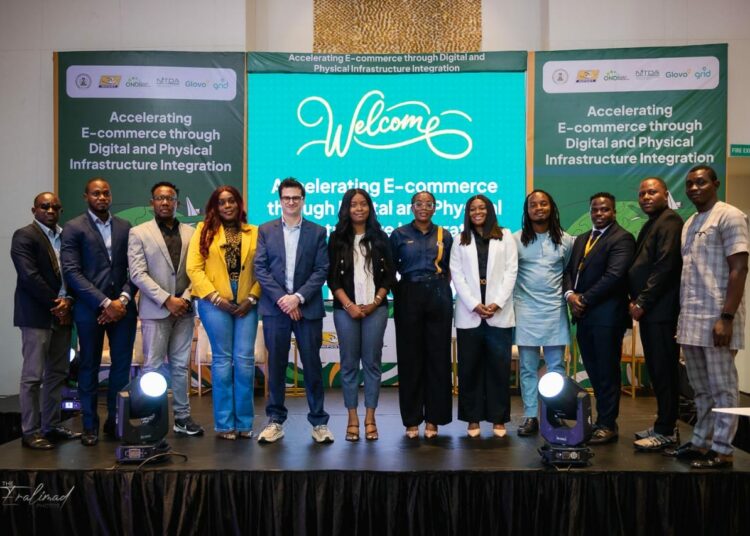Minister of Communications, Innovation and Digital Economy, Dr. Bosun Tijani stated that, for Nigeria to lead e-commerce space in the global economy, it requires a comprehensive approach to address the logistical and infrastructural challenges that hinder the seamless movement of goods and services, particularly in underserved and rural areas.
Tijani stated this at a stakeholder forum on accelerating e-commerce through digital and physical infrastructure integration hosted by Glovo in collaboration with NIPOST and the Nigerian Ministry of Communications, Innovation & Digital Economy with the theme, ‘Bridging the Gap: Digital Innovation Meets Logistics’ held in Lagos.
The Forum brought together industry stakeholders to explore the immense opportunities and transformative potential of e-commerce as a driver of Nigeria’s economic growth and regional trade integration under the African Continental Free Trade Area (AfCFTA).
The minister, represented by the postmaster general, NIPOST, Tola Odeyemi underscored the importance of logistics and nationwide accessibility in building a thriving digital economy.
He highlighted NIPOST’s expansive physical infrastructure and its potential to serve as a backbone for last-mile delivery solutions, saying, “by aligning our vast network with digital platforms, we can create an efficient logistics framework that benefits businesses, especially SMEs, and ensures that e-commerce reaches every corner of Nigeria.”
He also pointed out that, “by bringing together policymakers, private sector leaders, technology innovators, and logistics providers, we aim to forge a framework that positions Nigeria as a leading hub for e-commerce in Africa.”
A key moment of the event was the presentation of selected highlights from Glovo’s Yellow Effect Report by the Global director of Government Relations at Glovo, William Benthall. The highlights emphasised how innovative logistics solutions and digital integration can empower local businesses, drive economic growth, and enhance supply chain efficiency.
General manager of Glovo Nigeria, Lamide Akinola shared how Glovo is leveraging artificial intelligence (AI) to optimize e-commerce operations.
She explained that, AI plays a crucial role in enhancing efficiency across the value chain, from streamlining delivery logistics and predicting demand patterns to improving the overall user experience, saying, “with AI-driven insights, we can help SMEs scale faster, reduce inefficiencies in last-mile delivery, and ensure that customers get the best possible service.”
Akinola highlighted Glovo Local, an initiative designed to equip SMEs with the digital tools, training, and financial resources needed to thrive in an increasingly tech-driven economy.
Also, Regional head of Government and Public Relations, Sub-Saharan Africa at Glovo, Chidera Akwuba said, this forum was a crucial step in fostering strategic partnerships that will help address logistical barriers and unlock new growth opportunities.
The discussions from the forum are expected to shape future policy frameworks, investment opportunities, and strategic partnerships that will drive long-term industry growth.
For Glovo, the event reaffirmed its commitment to leveraging AI, fostering strategic partnerships, and supporting SMEs to advance e-commerce in Nigeria. By collaborating with the Ministry of Communications, Innovation & Digital Economy through NIPOST, Glovo is playing a pivotal role in building a more inclusive and efficient digital commerce ecosystem, one that ensures businesses of all sizes can thrive in the evolving digital economy.











